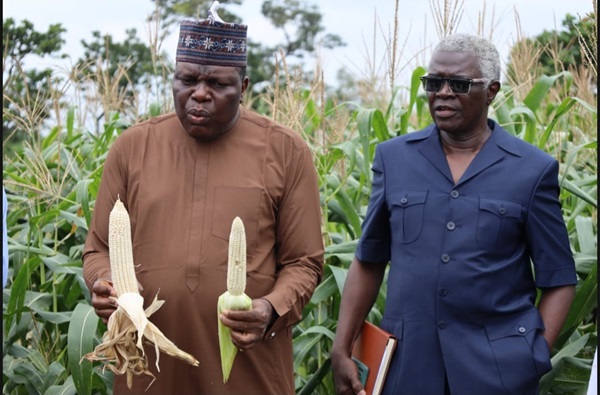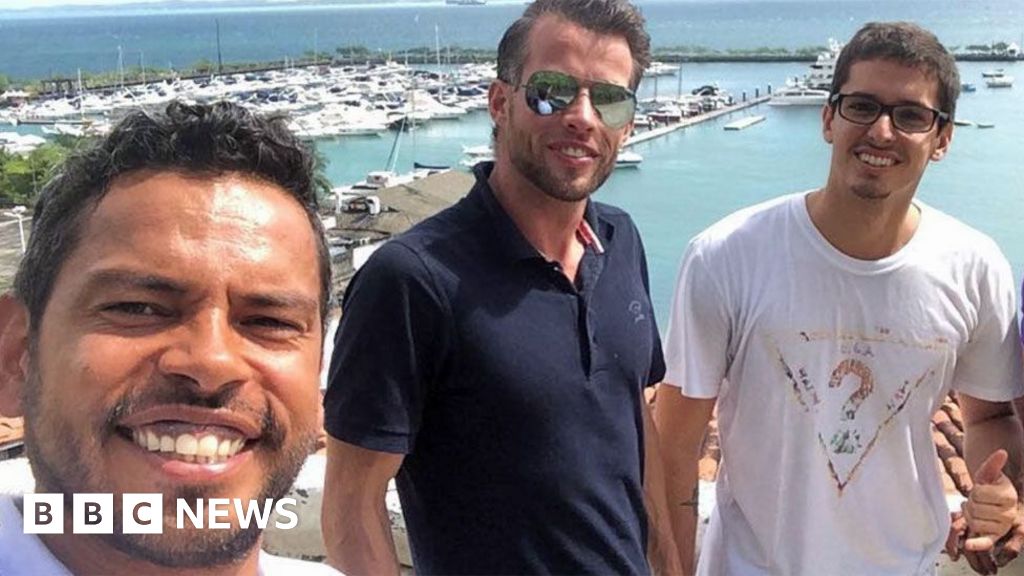Place your adverts here on InfoDig @ low rates; banner ads, sponsored links and guest articles etc. Contact us
 A child being immunised.
A child being immunised.Experts, government officials, and civil society organisations (CSOs) convened at the Peer Learning and Capacity Building Workshop in Abuja to develop strategies for enhancing childhood immunisation programmes in Guinea and South Sudan.
Organised by the Vaccine Network for Disease Control (VNDC), the workshop focused on the “Promoting Rotavirus Vaccine and Pneumococcal Conjugate Vaccine (PCV) for Enhanced Childhood Immunisation and Safety (PRECISE) Project.”
The PRECISE project aims to promote the introduction of the life-saving Pneumococcal Conjugate Vaccine (PCV) and Rotavirus Vaccine in Africa, targeting pneumonia and severe diarrhoea, two leading causes of child mortality on the continent. Nigeria’s successful integration of both vaccines into its national immunsation programme serves as a model for Guinea and South Sudan, where capacity building and government collaboration will be essential for successful implementation.
A representative of the National Primary Health Care Development Agency (NPHCDA), Dr. Bello Yahaya highlighted Nigeria’s progress in vaccine rollouts and stressed the government’s pivotal role. He credited partnerships with international organisations such as Gavi, the Vaccine Alliance, for providing the necessary funding and technical support, which reduced the prevalence of pneumonia and diarrhea in children under five by over 30 per cent.
Yahaya acknowledged challenges such as funding gaps and logistical difficulties in remote areas but emphasised the importance of CSOs in grassroots mobilisation. “CSOs have been the backbone of grassroots mobilization, advocating for vaccine acceptance and combating misinformation,” Yahaya noted, urging CSOs in Guinea and South Sudan to advocate for policy reforms and collaborate with their governments.
Social behavioural change officer at UNICEF, Ms. Margaret Soyemi underscored the critical role CSOs, community-based organisations (CBOs) and faith-based organisations (FBOs) play in reaching communities that formal institutions may not. She noted that CSOs’ local knowledge and connections are crucial for delivering life-saving vaccines and promoting public health goals.
Former deputy chair of the House Committee on Healthcare, Hon. Usman Mohammed called for mobilising political will and financial resources to ensure timely vaccine introductions in Guinea and South Sudan. He emphasised the urgency of acting now to reduce child mortality. “The stakes are too high for inaction. These vaccines can significantly reduce child mortality, but we need immediate action from our leaders to push this agenda forward,” he asserted.
Country coordinator of Global Health Alvicagy Incubator, Dr. Emmanuel Alhassan stated that introducing these vaccines offers an opportunity to strengthen broader health systems in Guinea and South Sudan. He emphasised that expanding vaccine coverage through the PRECISE project could lay the foundation for more sustainable health improvements beyond childhood immunisation.
The chairman of Nigeria’s National Immunisation Technical Advisory Group (NITAG), Prof. Ibrahim Abuye highlighted CSOs’ role in bridging the gap between government policies and grassroots implementation. He praised their active involvement in driving decisions and ensuring effective health service delivery.
Delegates from Guinea and South Sudan expressed commitment to implementing lessons learned from Nigeria. CEO of Réseau Afrique Jeunesse de Guinée (RAJ-GUI), Mr. Abdoulaye Kamara said the workshop provided a framework for navigating political and logistical challenges. He stressed that introducing these vaccines by 2025 could significantly reduce childhood mortality from pneumonia and diarrhea in both countries.
Kamara reiterated that vaccines save lives and highlighted the importance of collaboration among governments, CSOs and the media to enhance childhood immunisation across Africa. “Through strong partnerships, we can overcome barriers and create a healthier future for our children,” he noted.
CEO of VNDC, Mrs. Chika Offor announced that CSOs from Guinea and South Sudan began strategic engagement with their Nigerian counterparts during the workshop. The collaboration aims to transfer knowledge from Nigeria’s successful vaccine rollout to these countries.
Offor explained that the workshop fostered knowledge sharing, focusing on advocacy, capacity-building, and accountability. “This collaboration is expected to help Guinea and South Sudan overcome challenges in introducing critical vaccines like PCV and the Rotavirus vaccine. Nigeria’s success demonstrates what can be achieved with strong political will and a well-supported health system,” she stated.
Participants from Guinea and South Sudan will work closely with Nigerian CSOs to develop actionable plans tailored to their specific needs, addressing political, logistical, and funding challenges. Offor added that strategies for engaging political leaders and mobilising community support will be essential, especially by working with faith-based organisations, women’s groups and youth networks to build trust and acceptance within communities.
She emphasised the importance of strengthening vaccine equity and encouraged the use of Nigeria’s NITAG as a model for guiding counterparts in Guinea and South Sudan. Offor noted that CSOs play a vital role in advocacy, community mobilisation, and combating misinformation about vaccines. “CSOs will play a pivotal role in creating grassroots demand for vaccines and ensuring that the public understands the life-saving benefits of immunisation,” she remarked.
She urged CSOs in Guinea and South Sudan to continue advocating for policy changes and collaborating with their governments to ensure a smooth vaccine rollout.
Pneumonia and rotavirus continue to be major causes of child mortality globally, accounting for over 700,000 under-five deaths from pneumonia and 215,000 from rotavirus annually, especially in low-income countries like Guinea, Chad, Somalia and South Sudan. The PCV and Rotavirus vaccines provide safe and effective solutions to reduce these deaths.
At the 2nd Global Forum on Childhood Pneumonia, stakeholders committed to improving child health and reducing pneumonia deaths under the Sustainable Development Goals (SDGs). The PRECISE project advocates for the introduction of these vaccines, strengthening CSO capacity and raising public awareness for broader vaccine adoption, ultimately saving countless lives across Africa.















 English (US) ·
English (US) ·